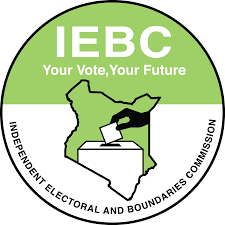The Independent Electoral and Boundaries Commission (IEBC) has come under renewed scrutiny following claims of possible election rigging ahead of the 2027 General Election. The newly appointed team of commissioners, led by chairperson Erastus Edung Ethekon, formally assumed office on July 11 but now face the daunting task of rebuilding public trust in the electoral process.
As the commission gears up to oversee 20 upcoming by-elections, political analysts and leaders are calling for urgent reforms to ensure transparency and accountability in future polls. Political analyst Ahmed Hashi underscored the deep-rooted culture of vote rigging in Kenyan politics, warning that unless addressed, it could once again undermine democratic principles.
“We are talking about having an IEBC because we are afraid of theft everyone wants to steal votes. It’s crucial to have institutions that uphold the moral foundation of citizenship,” Hashi said during a panel discussion on Citizen TV.
Nyamira Senator Okong’o Omogeni echoed similar sentiments, stressing the need for the IEBC to demonstrate impartiality and openness in its operations. “It is the Kenyan people who are the ultimate decision-makers. The IEBC must ensure the will of the people is respected and protected,” he remarked.
Lawyer and political commentator Steve Ogolla highlighted the persistent challenges of managing elections manually, noting that transitioning to an efficient electronic system has remained elusive for the commission. He warned that unless modern systems are fully implemented, the integrity of future elections could be compromised.
These concerns have been further amplified by controversial remarks from elected leaders. Tiaty MP William Kamket recently insinuated that plans were underway to ensure President William Ruto secures re-election in 2027. Wajir Woman Representative Fatuma Jehow went a step further, publicly claiming that ballot-stuffing would be employed to secure Ruto’s victory.
The statements have sparked widespread condemnation and renewed calls for electoral reforms. With less than two years to the next general elections, the IEBC faces a critical test: to assure Kenyans of a credible, transparent, and fair electoral process, or risk plunging the country into yet another political crisis.

